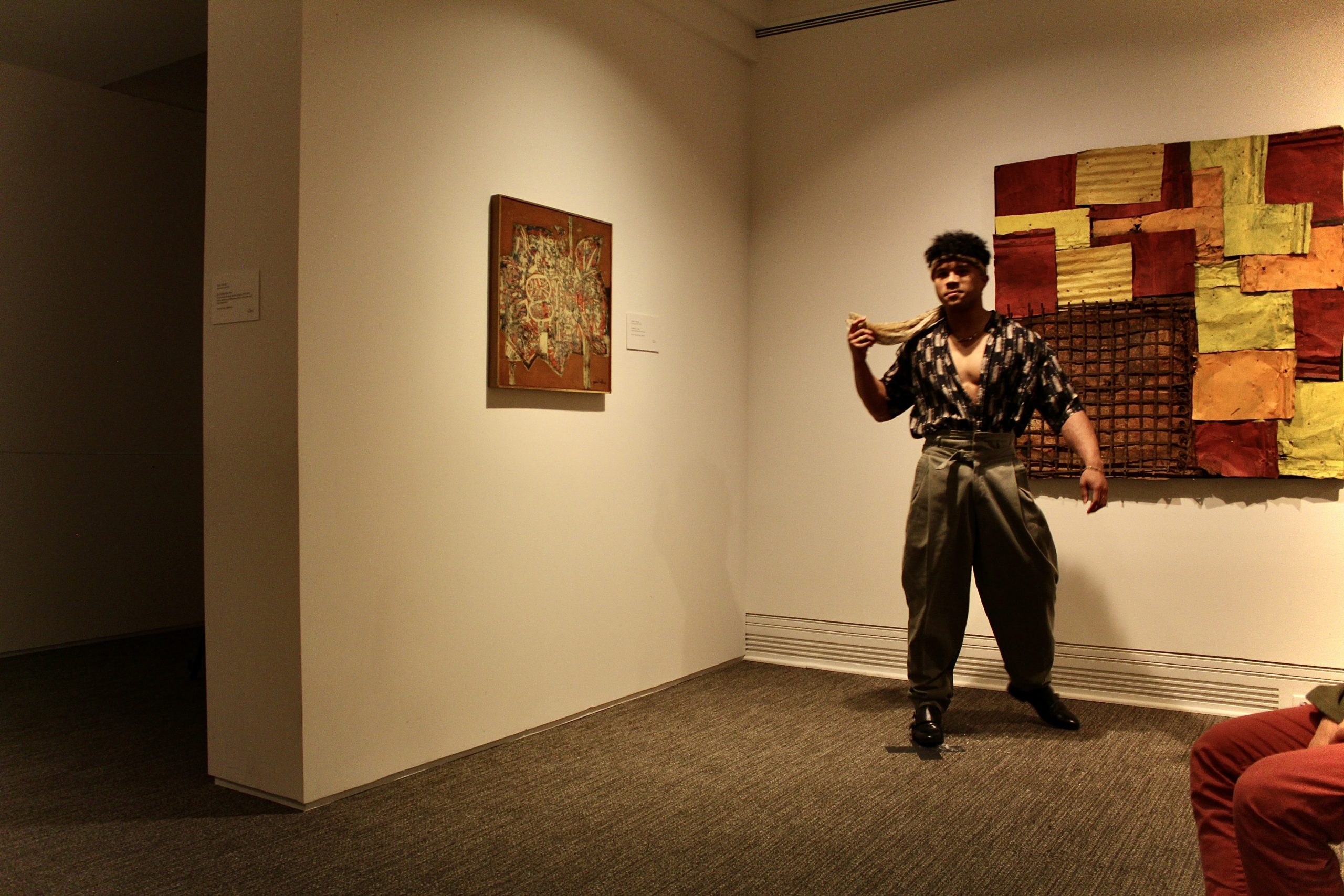
Christian Chung on the runway at Sustainable Strut wearing “Xpressions Spring Break” by Mirror Mirror | Image by: Caroline Kelly
Tuesday, Feb. 27, 2024
By Carolina Kelly
Last month marked the first thrifting exposition of 2024 hosted by NC Vintage Bazaar, marketed as the “biggest vintage clothing and thrift convention in the state.” The event was held at the N.C. State Fairgrounds on Jan. 21 and 22.
On both days of operation, the NC Vintage Bazaar featured over 80 different vendors from across the state of North Carolina. Thrifted goods available for purchase included clothing items, accessories, music records and other vintage memorabilia.
Alexis Smith, owner of TheLabelbyLex, was one of the many vendors who curated a booth for the convention. Smith’s booth featured mainly Y2K-inspired women’s wear, with an emphasis on accessories.
“Belts, purses, jewelry– those are my like really big things I tend to look for that I feel like other vendors don’t pay attention to,” Smith said. “If you don’t have accessories for clothes, then it just doesn’t make sense.”
Thrifting has become a full-time job for the Charlotte-based creator, requiring her to travel across the state and beyond to find vintage pieces.
“I enjoy getting up every day, going to thrift and looking through junk and finding treasures,” Smith said.
Durham native Ali Jolie was another vendor at the NC Vintage Bazaar. Her business, Ali’s Vintage World, had a booth at the event that placed femininity at the forefront.
“I mainly go for a lot of like floral and girly pieces and a lot of basics that fit really well,” Jolie said. “Vintage clothes are a lot better quality than a lot of clothes today.”
Jolie is also the owner and creator of Bull City Flea, a pop-up vintage market in Durham. The market was created in May 2023 and has grown from 22 vendors to 32 over the last year. Bull City Flea operates on a smaller scale than the NC Vintage Bazaar, which Jolie finds beneficial.
“I feel like every time I go to Bull City Flea and I talk to all the vendors and the people there, they just keep stressing how it just seems so chill and laid back,” Jolie said.
Bull City Flea’s ninth pop-up happened this past weekend.
Resale vintage markets, like NC Vintage Bazaar and Bull City Flea, have become popularized in recent years. However, UNC-Chapel Hill student Christian Chung cautions how some of these markets can be inaccessible.
“It comes to a point where the whole resale process and upcharging for profit has become very lucrative to me,” Chung said. “I think there’s a difference between sourcing and marketing sustainably.”
Chung is an Environmental Affairs General Staff member in the UNC Student Government Executive Branch. This past Friday the Environmental Affairs Branch held their second-annual Sustainable Strut– a fully second-hand sourced fashion show. Several items featured came from Dress for Success Triangle, a non-profit that aims to provide professional attire to those in need.
“We try to bring together a lot of diverse voices, opinions and groups just to frame our mission,” Chung said. “ It’s a very, very unique platform for students.”
Others in the community have echoed Chung’s sentiments regarding resale markets. Allison Kalloo is the founder of iParticipate— a patient and community engagement company working to increase education about clinical trials and diversity in medical research. She expresses her creative side through her fashion upcycling venture Cvstomology, and has previously been to the NC Vintage Bazaar.
“What is unfortunate is that because so many people are now hip to thrifting and often use it to resell at a significant markup, thrift stores are increasingly making adjustments to their prices so they can make a profit, too,” Kalloo said. “The bargains are not what they used to be.”
The fashion industry, as well as the thrifting industry, is constantly changing. With the rise in vintage markets, thrifters and second-hand sourcing, the issue of fast fashion is gradually being addressed. Yet, the problem of accessibility to sustainably sourced and reasonably priced clothing appears to remain.
“Access is a theme that is central to thrifting because it has been a great equalizer,” Kalloo said. “High-quality goods of all kinds can still be found at deep discounts. Nowadays, it’s become a matter of having a really good eye and great timing.”